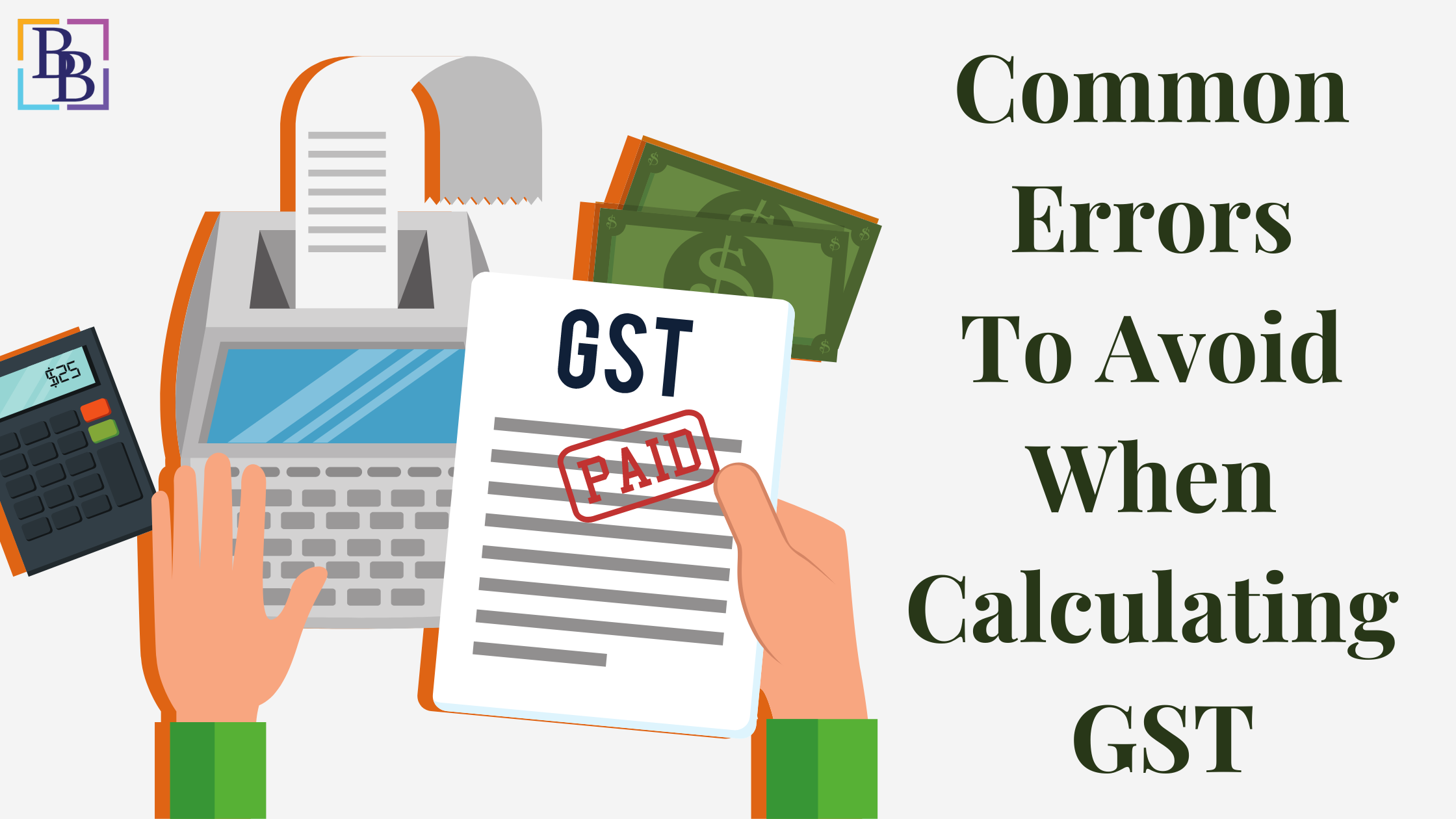In India, an indirect tax known as the Goods and Services Tax (GST) is levied on the provision of goods and services. VAT, excise duty, service tax, and other indirect taxes have all been replaced by the GST. The Indian taxation system has undergone several modifications with the introduction of GST. Businesses must register for GST and abide with tax regulations. To avoid computing GST, many firms commit errors, which might result in fines and legal troubles.
We at Beyond Books N Compliance can help you with a GST calculator to help you prevent mistakes that might occur when manually calculating GST. In essence, GST applies to all products and services on the market. The GST is a comprehensive tax on the supply of goods and services, to put it another way.
Table of Contents
Importance of Filing Correct GST Returns
For companies to continue to comply with tax laws, filing appropriate GST returns is essential. When preparing their GST returns, taxpayers do, however, frequently commit a number of blunders. In this blog post, we'll go through the value of submitting proper GST returns and point out some of the most frequent mistakes people make while doing so. We'll also offer some useful pointers to assist you stay clear of them and file your GST returns accurately.
Businesses place a high value on filing proper GST returns. In this part, we'll go over why it's so important to file GST returns accurately and without mistakes or inconsistencies. We'll talk about how timely filing promotes compliance, averts fines, and builds confidence with tax authorities.
Typical Mistakes Made When Filing GST Returns
The errors are as follows:
- Inaccurate Reporting of Sales and Purchases: Explanation of how inaccurately reporting sales and purchases can result in mistakes in the computation of tax liability.
- Incorrect Input Tax Credit (ITC) Claims: Importance of accurately claiming input tax credits and the repercussions of erroneous claims are discussed in relation to inaccurate ITC claims.
- Failure to Maintain Proper Tax Invoices and paperwork: An explanation of the need of maintaining accurate tax invoices and paperwork as well as the consequences of failure to do so.
- Missed or Late Filing Deadlines: A discussion of the consequences of missing or late filing GST return deadlines, including penalties and interest costs.
- Ignoring Mismatch and Reconciliation Errors: An explanation of the necessity of comparing data with GSTR-2A and resolving any differences to avoid fines.
- Paying Tax Under the Wrong GST Category: A discussion of the effects of choosing the incorrect GST category when submitting returns and how to prevent such mistakes.
- Treating Zero-Rated Exports as Nil-Rated: This section explains the distinction between zero-rated and nil-rated goods as well as the possible pitfalls of doing so.
Advice on How to Avoid Common Errors
This section offers helpful advice and suggestions to assist taxpayers in avoiding frequent errors while submitting GST returns. Each suggestion will be thoroughly explained, including how it might assist prevent mistakes and guarantee proper GST return submission. The following are the hints addressed in this section:
- Keep Proper Records to properly Report Sales and Purchases: Advice on keeping correct records to properly report sales and purchases.
- Conciliate Input Tax Credit (ITC) Claims: A description of the significance of conciliating ITC claims with supplier data as well as practical methods for doing so.
- Timely Filing and Payment: Tips on meeting the deadlines for filing GST returns and paying taxes on time to avoid fines.
- Validate Tax Invoices and documents: Advice on ensuring that tax invoices and other necessary documents are accurate and comprehensive.
- Cross-Verify GSTR-2A with Purchase Records: Guidance on cross-checking GSTR-2A with purchase records to identify and rectify any mismatches.
- Consult Experts: Encouragement to seek assistance from professionals or experts for: professional direction and advice on GST compliance. Consult with Professionals or Experts.
- Conduct Regular GST Audits: The advantages of conducting frequent GST audits to find and fix mistakes before submitting returns are explained.
- Use technology and automation: Details on how making use of technology and automation tools may speed up the submission of GST returns and reduce mistakes.
- Find out more by contacting the GST Helpdesk: Advice on how to contact the GST helpdesk for questions and support in comprehending challenging GST laws.
GST Calculator to Determine the GST
The GST Calculator is an efficient tool for calculating the Goods and Services Tax (GST) due on transactions for both businesses and individuals. In India, the provision of goods and services is subject to an indirect tax known as GST. Many indirect taxes, including VAT, excise taxes, service taxes, and others, have been replaced by it.
You must input transaction information, including the value of the products or services, the appropriate GST rate, and any additional costs like freight or insurance, in order to use the GST Calculator. The GST Amount and Total Value of the Transaction will then be calculated by the GST Calculator.
Businesses and individuals may compute GST properly and quickly by using a GST Calculator. Additionally, it lessens the possibility of GST computation mistakes, which may result in fines and other problems with the law.
In order to avoid fines and legal repercussions, businesses in India must be careful while computing GST. They should avoid making frequent errors including failing to recognise the appropriate GST rates, classifying products or services incorrectly, failing to include the cost of shipping and insurance, providing goods or services in the wrong location, and failing to keep proper records. To guarantee that they are in compliance with the tax rules, businesses should remain up to speed on the GST requirements. Businesses may expedite their GST compliance procedure and aid in the expansion of the Indian economy by avoiding these blunders.
